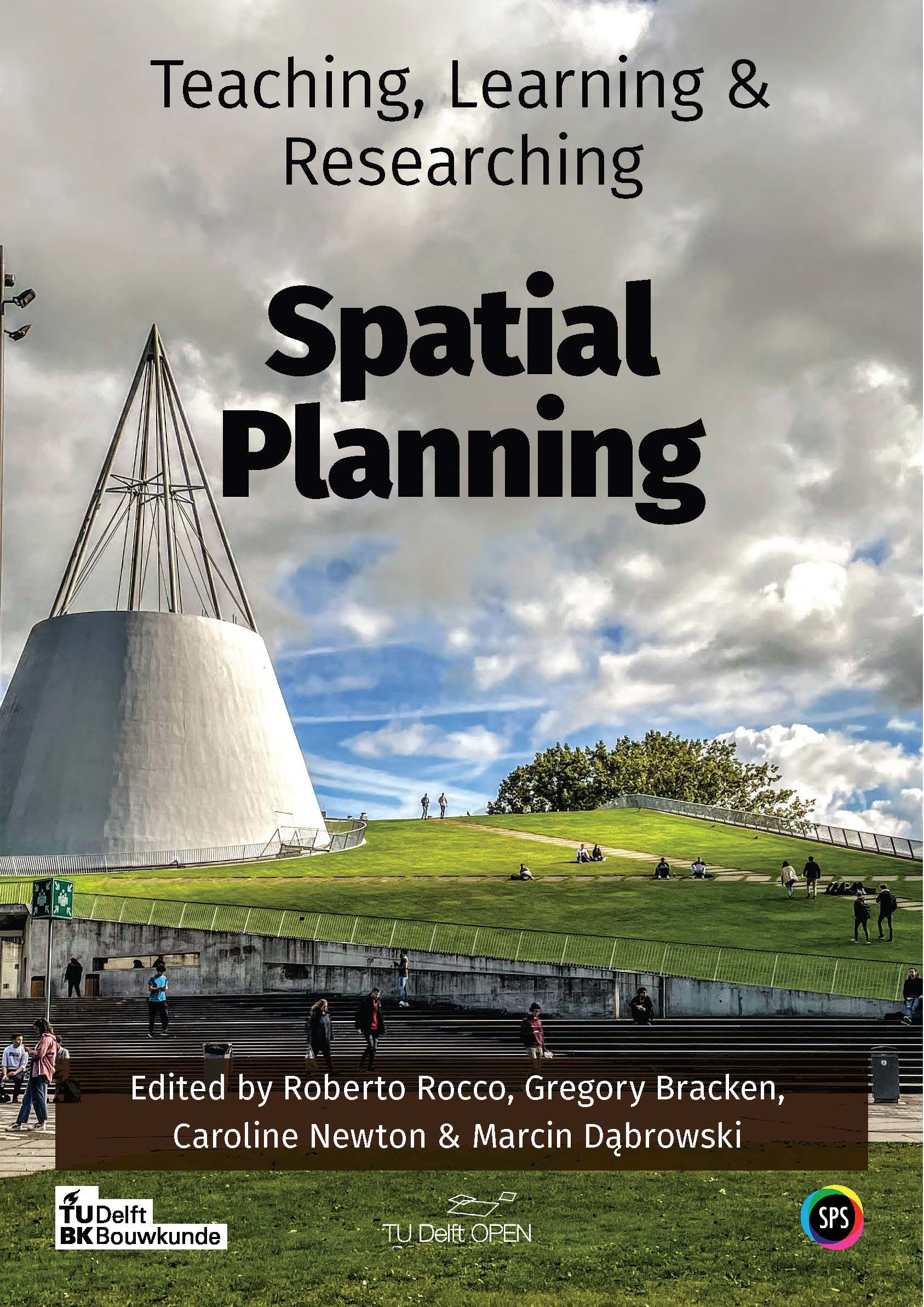The section of Spatial Planning and Strategy of the Departmet of Urbanism at the Delft Universuty of Technology (TU Delft) has just launched a new book titled “Teaching, Learning and Researching Spatial Planning” gathering knowledge from the section’s members and partners on topics connected to concepts, tools, methods and teaching experiences at SPS.
The idea was to gather knowledge from all the members of the section and contribute to the discussion on the Delft Approach to Urbanism by showcasing our approach to integrated inclusive planning and design.
The book is edited by Roberto Rocco, Gregory Bracken, Caroline Newton and Marcin Dąbrowski, PhD. It has 19 chapters organised in three sections (Concepts & theories, Current Issues and Methods, Tools, & Teaching) and was published in Open Access by TU Delft Open. It is available for FREE download from https://books.open.tudelft.nl/home/catalog/book/50 and there is a print on demand option.
This book is composed of a general introduction followed by 18 chapters written by teachers and researchers from TU Delft, as well as frequent collaborators, each describing an issue or tool used in Spatial Planning, as it is taught and researched at our university. The book aims to give readers around the world an introduction to how spatial planning is conceived at TU Delft. Spatial planning is a highly idiosyncratic discipline and is conceived differently around the world. In most places, spatial planning is part of an architectural approach to the city, in which design exists almost autonomously, while in other places it is part of a political-economical approach to the city. What distinguishes Delft is the bridge we have managed to build between design and politics, and the way we understand space as foundational for the understanding of socio-economic processes. This is anchored on a Dutch tradition of city-making in which issues of “maakbaarheid” (roughly translated by “feasibility”), a guiding concept in Dutch society, which was built upon an exceedingly difficult territory to plan, design and manage. Spatial planning in the Netherlands is hence a combination of planning, design and management that is unique. Simultaneously, spatial planning as a discipline in the Netherlands is rather forward-thinking and uniquely equipped to deal with the great societal challenges of our time (climate change, pandemics, growing inequality, etc) and may be useful for students and teachers elsewhere seeking to learn from other traditions. Each chapter addresses issues that we see as central to the way of teaching and researching spatial planning.

Hope you enjoy! This is a great opportunity to get to know our work in a very comprehensive way!

